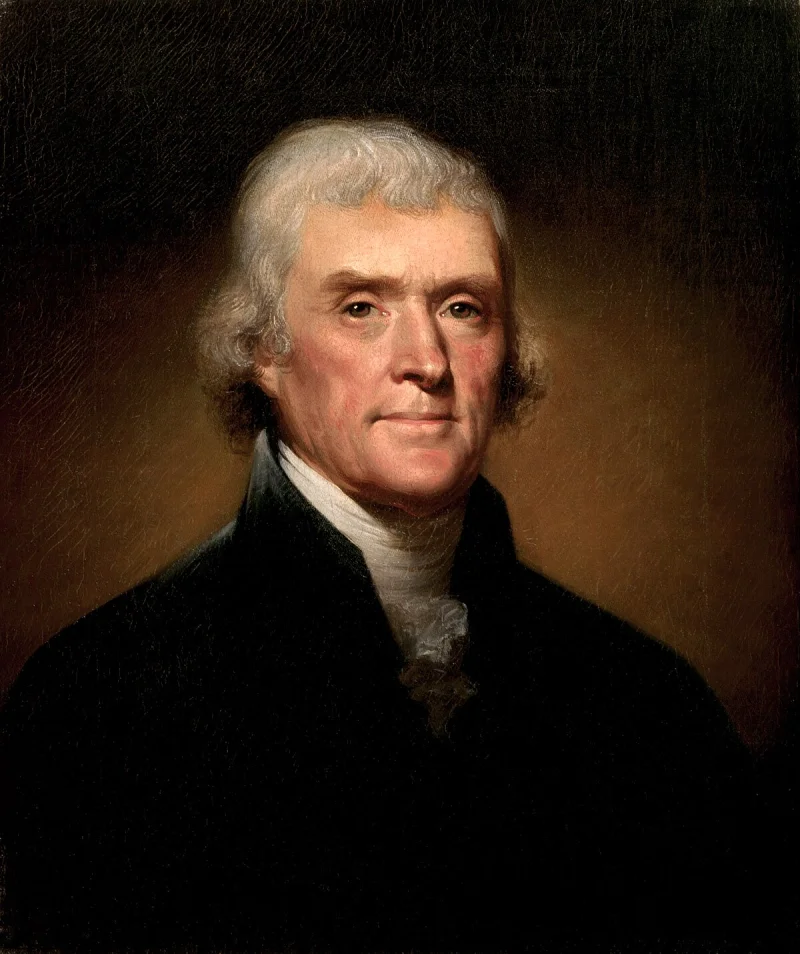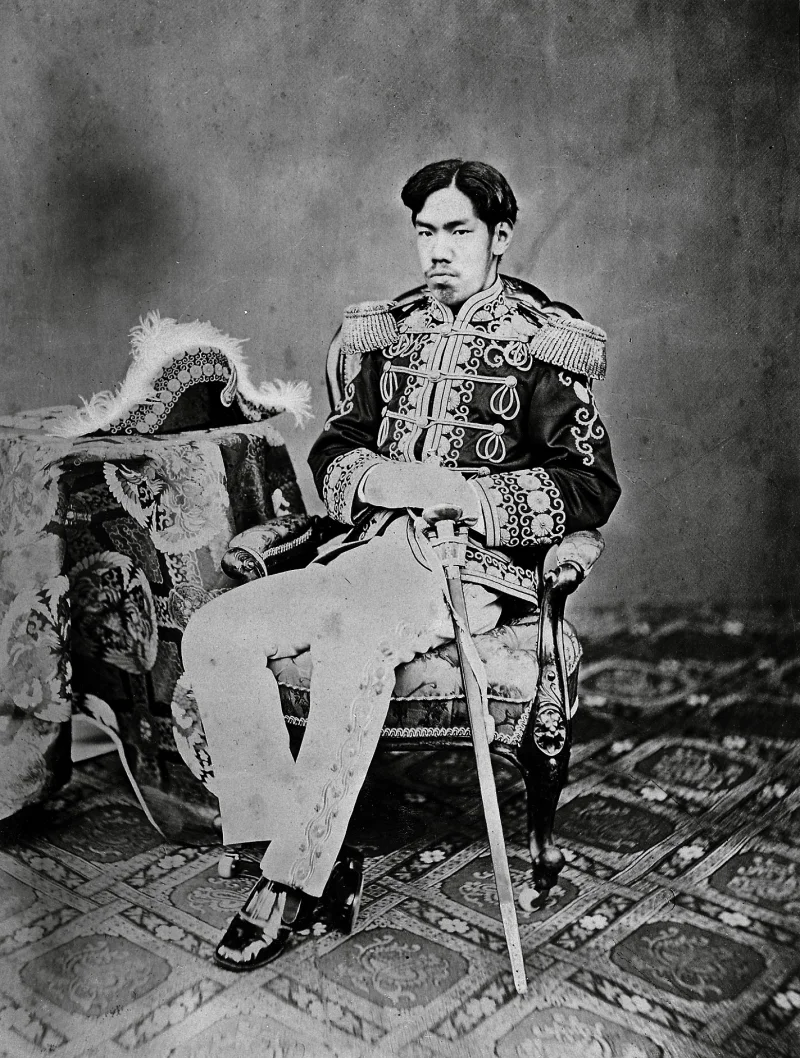Short Summary
Thomas Jefferson was a pivotal figure in American history, known primarily for his role as the principal author of the Declaration of Independence and as the third President of the United States. His presidency included significant events such as the Louisiana Purchase and the Lewis and Clark Expedition. An advocate for democracy, individual rights, and religious freedom, Jefferson's ideas have had a lasting impact on the nation. His contributions to the founding of the United States continue to be celebrated and studied.
Early Life & Education
Born on April 13, 1743, in Shadwell, Virginia, Thomas Jefferson was the third of ten children in a prominent family. His father, Peter Jefferson, was a successful planter and surveyor, while his mother, Jane Randolph, belonged to one of Virginia's most distinguished families. Jefferson began his education at a local school run by a Scottish minister before attending the College of William & Mary at the age of 16. There, he studied mathematics, metaphysics, and philosophy under the guidance of Dr. William Small, who greatly influenced his intellectual development. Jefferson's passion for learning and his commitment to Enlightenment ideals were rooted in these formative years.
Career Highlights
Jefferson's illustrious career began with his election to the Virginia House of Burgesses in 1769. He became a vocal advocate for American independence, drafting the Declaration of Independence in 1776. He served as the Governor of Virginia from 1779 to 1781 and later as the United States Minister to France. In 1790, he became the first Secretary of State under President George Washington. Elected as the third President of the United States in 1800, his presidency was marked by the Louisiana Purchase in 1803, which doubled the size of the nation. After two terms, he retired to Monticello, where he focused on education, founding the University of Virginia.
Major Achievements
- Drafting the Declaration of Independence: This document laid the foundation for American independence and democratic principles.
- Louisiana Purchase: As President, he doubled the size of the United States by acquiring vast territories from France in 1803.
- Founding the University of Virginia: He established this institution in 1819, emphasizing secular education and academic freedom.
- Virginia Statute for Religious Freedom: Authored in 1786, it established religious liberty and the separation of church and state in Virginia.
Famous Quotes
- "We hold these truths to be self-evident, that all men are created equal."
- "I cannot live without books."
- "The tree of liberty must be refreshed from time to time with the blood of patriots and tyrants."
Interesting Facts
- Jefferson was an accomplished violinist and played musical instruments throughout his life.
- He was a skilled architect, designing his famous home, Monticello, and the buildings of the University of Virginia.
- Jefferson spoke several languages, including Latin, Greek, French, Spanish, and Italian.
- His extensive library collection became the foundation of the Library of Congress after it burned in 1814.
Legacy / Influence
Thomas Jefferson's legacy endures in American culture and governance. His advocacy for democracy, individual liberty, and education has shaped the nation's values and ideals. As a Founding Father, his contributions to the establishment of a new republic are celebrated, and his writings continue to inspire discussions about freedom and governance. Jefferson's vision for a nation built on Enlightenment principles remains a guiding light for the United States.
FAQ
Q: Why is Thomas Jefferson famous?
A: Thomas Jefferson is famous for being the principal author of the Declaration of Independence and serving as the third President of the United States.
Q: What were Thomas Jefferson's major presidential achievements?
A: His major achievements include the Louisiana Purchase and the Lewis and Clark Expedition.
Q: What did Thomas Jefferson contribute to education?
A: He founded the University of Virginia, emphasizing secular education and academic freedom.
Q: What is the Virginia Statute for Religious Freedom?
A: Authored by Jefferson, it established religious liberty and the separation of church and state in Virginia.









